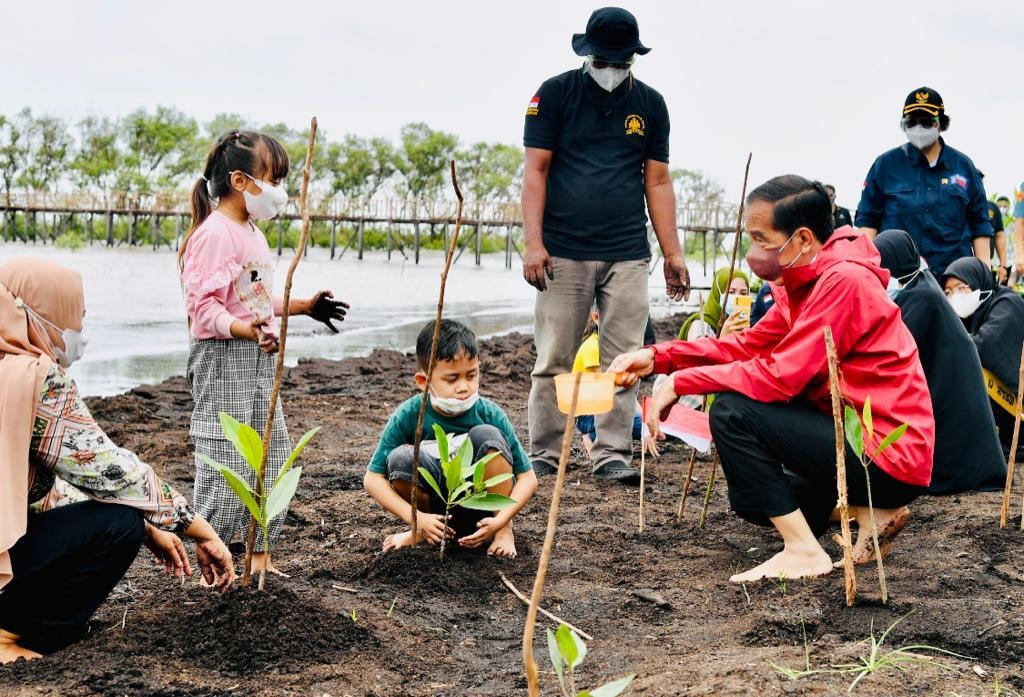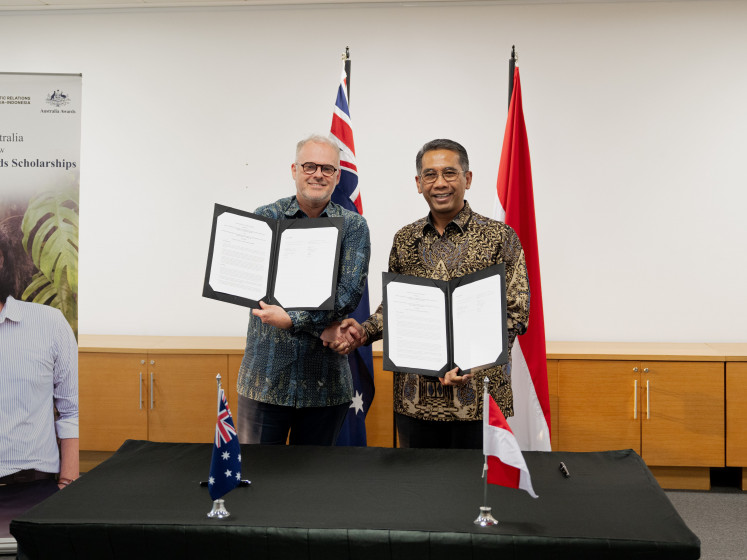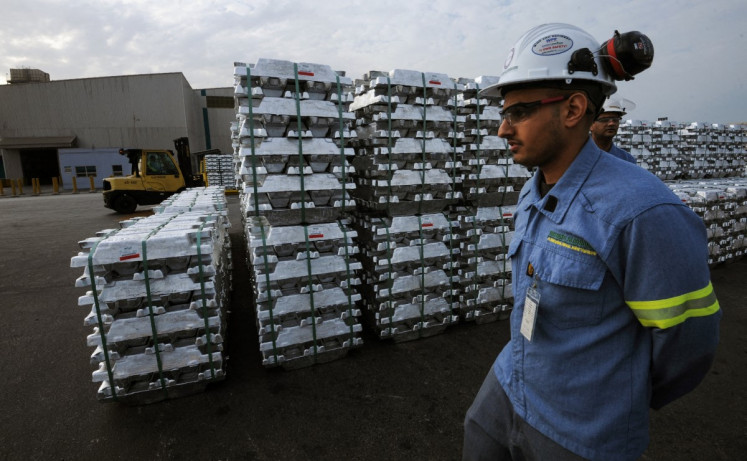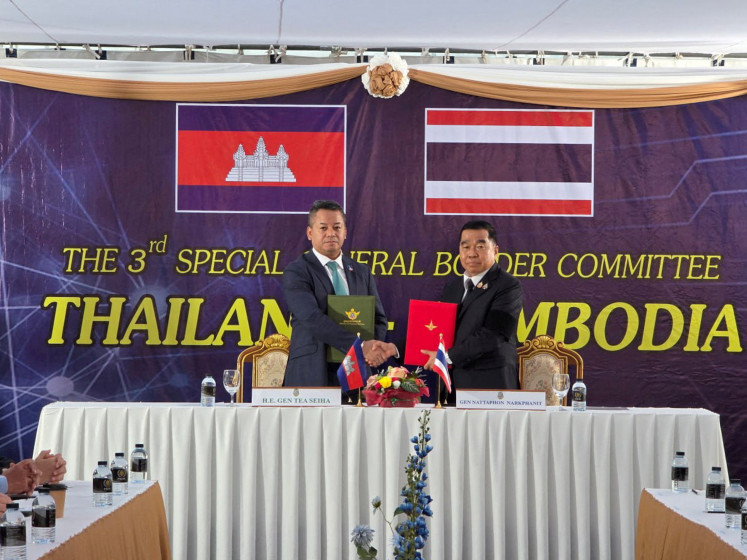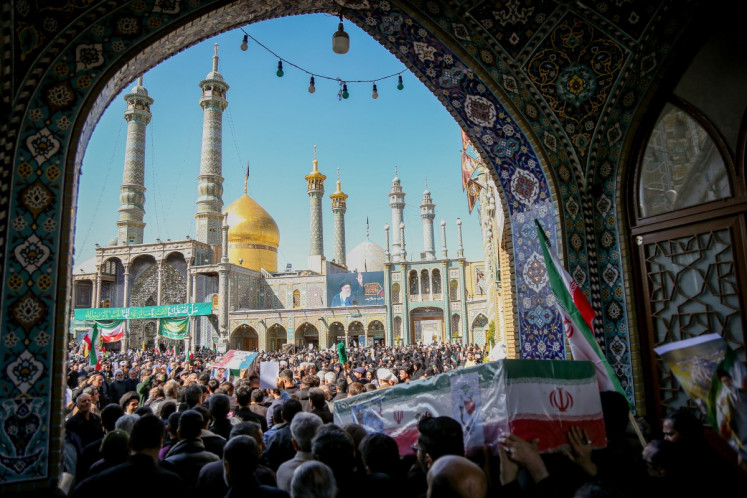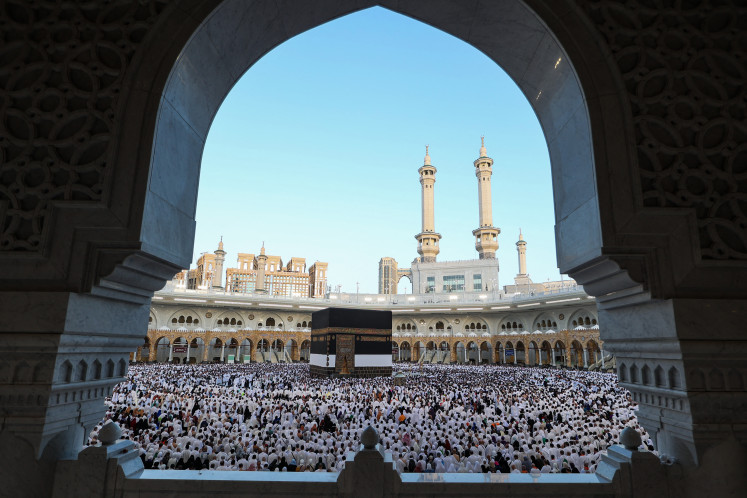Popular Reads
Top Results
Can't find what you're looking for?
View all search resultsPopular Reads
Top Results
Can't find what you're looking for?
View all search resultsLucky seven
Even if you don’t want to give credit to Jokowi, among policies rolled out by his government some must have worked.
Change text size
Gift Premium Articles
to Anyone
T
wo years into his second term, President Joko “Jokowi” Widodo has achieved what many of his peers in democratic nations could only dream of accomplishing. When it comes to job approval, even Barack Obama, arguably one of the United States’ most popular presidents, could only get between 40 and 45 percent around December 2014.
Jokowi’s current approval rating, which stood at 68.5 in September, is something that even first-term presidents wish they could savor early in their administration. Brazilian President Jair Bolsonaro, who still has one year before he can wrap up his first term, hit a 54 percent disapproval rating in August. Another first-term president, Emmanuel Macron of France, one of the most popular leaders in Europe only managed to get a paltry 40 percent approval early this month.
Jokowi’s approval rating does look miraculous considering all the odds that are stacked against him. The spread of COVID-19, the high number of cases and the death toll, as well as the pandemic’s deleterious impact on the economy, could have sunk his popularity, but his last-minute decision to impose large-scale mobility curbs, which are currently still in place, as well as numerous social safety net programs, have apparently paid off.
At the peak of the second wave in July, many cast doubt on his administration’s capability of turning a corner and improving the situation. But here we are, four months later and things are almost back to normal. Even if you do not want to give credit to Jokowi, among policies rolled out by his government some must have worked.
Politically, Jokowi also stands on firm ground with more than 80 percent of political parties in the House of Representatives backing his agenda and if the National Mandate Party (PAN) joins the Cabinet, his administration could accomplish so much with little hindrance and minor opposition. This is a scenario that eluded his predecessor Susilo Bambang Yudhoyono as the Democratic Party president was practically a lame duck around this time in his second term.
Jokowi can accomplish a lot with this political capital; from rebuilding the country’s economy, which has been battered by COVID-19, to carrying out his infrastructure agenda and deepening bureaucratic reform so that the country’s competitiveness can improve.
The last thing that President Jokowi needs is to indulge in distractions like tinkering to extend his term in office, imposing draconian measures to stifle opposition, or setting up a political dynasty – although with public support remaining high and most political parties behind him, those options are certainly within the realm of possibility.
Not only would these moves be undemocratic, he would surely not wish to see himself remembered for that legacy.

